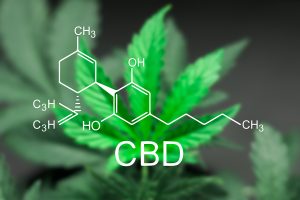Cannabidiol
Recommended Dosage • CBD Education and Consultation • CBD Testimonials
What is CBD?
CBD is an abbreviation for cannabidiol, a powerful chemical compound found naturally in the cannabis plant. Unlike the compound tetrahydrocannabinol (THC), it is not mind-altering which means CBD will not make you “high” or “stoned.”
CBD holds the key to a wide variety of medicinal and therapeutic effects by interacting with your body’s Endocannabinoid System. The more that is learned about CBD, the more it seems poised to revolutionize medicine as we know it.
CBD supplements your body’s Endocannabinoid System with additional cannabinoids to facilitate balancing of (to create homeostasis) your other bodily “operating systems” such as your nervous, digestive, immune, cardiovascular, respiratory, endocrine systems, and others (12 in all).
To understand more about CBD, here is a very informative 18 minute YouTube video (The Inside Story of Cannabidiol). This video does a really good job of describing, in lay terms, exactly what CBD is and how it affects the human body to help achieve homeostasis (balance) on a more consistent basis. While watching the video, you will be introduced to an “operating system” of the human body known as the Endocannabinoid System.
The Endocannabinoid System: a network of neurons
As humans, we are “hard-wired” with a system of millions of cannabinoid receptors throughout our brains and bodies. When these receptors are activated, they enable two-way communication between multitudes of bodily systems; something previously thought to be impossible.
Every major civilization in history has recognized hemp as #1 on its list of important plants. The ancient Chinese, Indians, Egyptians, Assyrians, Persians, Greeks and Romans all revered hemp as an incomparable source of food and medicine. Modern science is now validating what the ancients knew and is uncovering exciting new discoveries about hemp and the human Endocannabinoid System.
What Are Endocannabinoids?
Endocannabinoids are lipids (a special type of fat) that are synthesized in our bodies and interact with the nervous system to cause specific changes in the body. Endocannabinoids latch onto special endocannabinoid receptors to make these changes in the nervous system happen. Receptor cells are located throughout the body.
All mammals produce endocannabinoids that bind to endocannabinoid receptors. There are two types of endocannabinoids; anandamide and 2-AG. Each of these binds to specific endocannabinoid receptors. Anandamide latches onto CB1 receptors and 2-AG docks onto CB2 receptor cells. CB1 are more common in vital organs while CB2 are more prevalent in peripheral cells and especially in the immune system.
Cannabis plants produce a similar substance such as cannabidiol (CBD); that bind to these receptors too. When cannabinoids bind to these receptors, they can produce a pleasant euphoria. Endocannabinoids binding to these receptors also have a therapeutic effect that helps various body systems run well. Low endocannabinoid levels can cause body systems to function poorly. Substantially low endocannabinoid levels can cause symptoms of Endocannabinoid Deficiency Syndrome (CEDS).
As mentioned earlier, human and animal bodies synthesize endocannabinoids naturally. In fact, the prefix “endo” means “made in the body.” Endocannabinoids are part of the larger Endocannabinoid System that regulates many bodily functions including:
- Appetite
- Digestion
- Immune function
- Memory
- Mood
- Motor control
- Pain
- Pleasure and reward
- Reproduction and fertility
- Sleep
- Temperature regulation
There are three basic parts to the Endocannabinoid System:
- Endocannabinoids (synthesized in the body)
- Endocannabinoid receptors
- Enzymes that control endocannabinoid levels
Terpenoids are the compounds that give all plants, including fruits, flowers, and herbs many of their desirable aromas, flavors and other special properties such as color.
Cannabinoids are a sub-class of terpenoids. There are approximately 120 known cannabinoids (and still counting) found in cannabis plants (hemp & marijuana). It’s the only place they are found in nature! This is one of the many reasons hemp stands alone in the plant kingdom as a treasure chest of nutrition without equal.
What Are Benefits of CBD?
CBD is the most predominant cannabinoid in hemp, and has many beneficial properties.
In its patent (#6,630,507) titled CANNABINOIDS AS ANTIOXIDANTS AND NEUROPROTECTANTS, the U.S. federal government makes many impressive claims about CBD, stating that:
“Cannabinoids are potent antioxidants… they easily penetrate tissues giving them the ability to enter the central nervous system and brain.”
“Non-psychoactive cannabinoids such as CBD are particularly advantageous as they are non-toxic… and exhibit unique antioxidant properties… without the undesirable effects of THC.”
“The antioxidant strength of CBD is significantly greater than that of either Vitamins C or E.”
Since the FDA has recognized CBD as a new potential drug, there are many scientific studies and clinical trials currently being conducted. At present, it has been shown that CBD has the following medicinal properties:
- Anti-cancer/anti-proliferating
- Treatment and/or prevention of skin diseases like psoriasis
- Analgesic (pain treatment/relief)
- Anti-convulsive (anti-epileptic)
- Anti-bacterial
- Blood-sugar balancing
- Stress/anxiety relief
- Anti-emetic
- Anti-inflammatory
- Gastrointestinal relief
- Neuroprotective
- Non-psychoactive
Another way of saying it is CBD makes good things happen. When it binds to the endocannabinoid system’s receptors, it stimulates many changes in the body. Most of those changes are incredibly beneficial, and researchers continue to uncover real and potential medical uses for them.
Research on Safety
CBD hemp oil is safe for the whole family, and more scientific studies are validating this all the time. Among the most prominent health care professionals who support the use of non-psychoactive CBD is physician and researcher William Courtney, M.D. (http://cannabisinternational.org/about.php).
The Endocannabinoid Production in the Human Body
Shortly after the first cannabinoid was isolated from the cannabis plant in the 1980’s, scientists discovered that the human body produces similar substances on its own. These substances are now known as “endogenous cannabinoids.” Not only do humans produce their own cannabinoids, but they also have receptors designed specifically to recognize and respond to the endogenous cannabinoids produced. Together, the body’s endogenous cannabinoids and the receptors that bind with them form the Endocannabinoid System. This system is responsible for a number of functions within the human body, such as maintaining homeostasis.
How it Works
The body’s Endocannabinoid System relies on the natural production of endogenous cannabinoids in order to function properly. In order to produce the proper amount of endogenous cannabinoids, the body requires a sufficient amount of Omega-3 fatty acids. Omega-3 fatty acids are the precursor to endogenous cannabinoids. If they are in short supply, the body will not be able to manufacture the amount of endogenous cannabinoids it needs to maintain a healthy Endocannabinoid System. In addition, Omega-3 fatty acids are also essential to the health of other components in the Endocannabinoid System. For example, these compounds facilitate the growth and healing of CB1 receptors, which are required in order to process cannabinoids of any type. Furthermore, Omega-3s are important for the overall health of brain cells in general.
Omega-3 Deficiencies
If your diet doesn’t contain a sufficient amount of Omega-3 fatty acids, your body may be unable to produce the proper amount of endogenous cannabinoids on its own. In addition, because Omega-3 fatty acids grow and repair your CB1 receptors, the cannabinoids your body does produce may not affect the Endocannabinoid System as strongly as they should. For this reason, it is important for everyone to eat a diet high in Omega-3 fatty acids. Not only are these compounds important for the Endocannabinoid System, but they also promote human health in general by boosting fertility, lowering cholesterol, lubricating the joints, protecting vision, improving heart health and providing a number of other important benefits.
Endocannabinoid Deficiency Syndrome
Unfortunately, modern diets do not always contain the nutrition required to maintain the Endocannabinoid System properly. In cases where nutritional deficiencies or other problems are causing the Endocannabinoid System to fail, a person may develop a condition known as “Endocannabinoid Deficiency Syndrome” (CEDS). This can lead to a variety of symptoms and related conditions, including irritable bowel syndrome, fibromyalgia, migraines and more.
Treatment Options
If you are suffering from CEDS, you may be able to improve your condition by increasing the amount of Omega-3 fatty acids in your diet. This will help to heal your CB1 receptors, facilitate the growth of more receptors and increase the amount of endogenous cannabinoids your body produces. It may also be helpful to supplement your body’s endogenous cannabinoids with cannabinoids from external sources, such as CBD (Cannabidiol). Taking a CBD supplement will increase the concentration of cannabinoids in your body, thus leading to a more efficient and effective Endocannabinoid System.
THE ENDOCANNABINOID SYSTEM IN YOU
You have an “Endocannabinoid System” in your body. Every human does! This is one of the science’s most exciting discoveries – each of us is basically “pre-wired” with cannabinoid receptors throughout our body! These receptors are most abundant in our immune system and in our brain – two extremely important functions for optimal health and wellness.
CAN CBD HEMP OIL HELP ME?
Due to current regulations from the Medicines and Healthcare Products Regulatory Agency (MHRA), no claims can be made about any specific ailments that may be alleviated or cured with the use of CBD Hemp Oil. However, you can do your own research with the product and determine if it helps you.
CANNABIDIOL RESEARCH HAS SHOWN
- Strong anti-inflammatory and anti-aging properties
- Helps the body to prevent the production of the chemical that causes inflammation
- Anti-convulsive properties
- Provides an anti-depressant and anxiolytic (anti-stress) effect
- CBD can aid in the self-destruction of cancer cells (apoptosis) without affecting healthy cells
- The protection of nerves by inhibiting the processes that damage nerves
- CBD is effective against MRSA (antibiotic-resistant bug)
- CBD is NOT psychoactive because CBD is not THC – they are completely different compounds
The Endocannabinoid System in humans was first discovered in 1991 by an Israeli doctor (Prof. Raphael Mechoulam – http://mechoulamthescientist.com/about-the-scientist/) Prior to that point in time, that operating system wasn’t even known to exist. Now it is one of the most widely studied systems. Here is a link to a website that is host to a large number of Pub Med studies involving Cannabidiol (CBD) in a variety of ailments/diseases – http://cannabis-med.org/english/studies.htm
See what other customers have to say about CBD – CBD Testimonials
Disclaimer:
These statements have not been evaluated by the FDA and are not intended to diagnose, treat, or cure any disease. Always check with your physician/pharmacist before starting a new dietary supplement program. Links to any informational websites are provided solely as a service to our users. External links provide additional information that may be useful or interesting and has no affiliation to the promotion, sale and distribution from Invigorating Waters. The link does not constitute an endorsement of these organizations by Invigorating Waters and none should be inferred.
 Facebook
Facebook LinkedIn
LinkedIn Instagram
Instagram YouTube
YouTube
